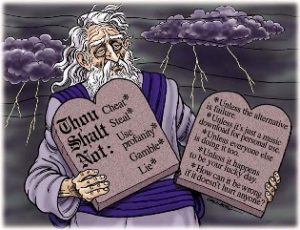Throughout history, the Bible has enabled a vast multiplicity of perspectives to engage its rich narrative content and colorful storytelling. Ripe for interpretation, this text has continually proven itself capable of hosting a seemingly endless number of distinct communities, each able to approach with their own unique lens and from within a range of enormously divergent frameworks. While we can be thankful for the Bible’s capacity to allow so many to simultaneously share in its experience, complications inevitably arise as these very different, sometimes even contradictory, beliefs struggle to cohabitate.
This resource attempts to alleviate these tensions by providing a framework for helping participants better understand the origins of diverse viewpoints and the mechanisms by which they emerge. It acknowledges the many controversies that surround ethical systems derived from the Bible and explores a number of scriptural elements that are responsible for making moral reasoning from this text particularly problematic. With an eye toward fostering an appreciation for how idiosyncrasies across individual standpoints develop, the categories of moral intuition proposed by social psychologist John Haidt are also considered insofar as they allow different individuals to prioritize different categories, even when confronting one and the same scenario. Once an appreciation for the legitimacy of diversity has been achieved in this way, the guide sets the observed ethical conflicts against the possible alternative of achieving peaceable coexistence by cultivating radically inclusive communities that encourage a plurality of voices to exist within their ranks. Relevant questions are found at various points throughout the discussion to facilitate discussion and further reflection.
Registered users can read more and get the PDF file here. It is free to register on LiberalEvangelical.org.



